Aardvark | Interview | The Mystique Behind the Lost Folk Rock Recordings
Prepare to rediscover a hidden gem from the early ’70s with Aardvark’s newly unearthed recordings, now brought to light by Seelie Court. This reissue offers a rare glimpse into the world of a band that, despite their brief existence, crafted music that resonates with a timeless folk rock charm.
Aardvark, formed by Richard Dow, Cameron Fegurson, and Davy Waugh, was known for its unique blend of folk and rock. Richard Dow was guitarist, David Waugh was the lead vocalist, Cameron Ferguson contributed harmonies and played violin, flute, guitar, and bagpipes before emigrating to Canada and being replaced by Cameron Watt, who was later succeeded by Roy Whittet, an excellent guitarist with strong harmonies, forming the new lineup of Thrush with Charlie Dyer on bass and harmonies, and Ross Crighton on drums, while throughout, it was David Waugh who stood out for his remarkable voice.
The Seelie Court release captures these recordings from Central Scotland Recording Studios, where the band recorded on a half-track Revox. The result is a collection of tracks imbued with a raw, unpolished energy that perfectly encapsulates the spirit of its time.
Listening to these lost recordings, you’ll experience the essence of Aardvark’s music—intimate, heartfelt, and distinctly original. Each track reflects the band’s dedication to their craft and their ability to blend folk sensibilities with a touch of rock edge. It’s a nostalgic yet refreshing look back at a band that never quite got the recognition they deserved.
This release is a chance to explore a piece of music history that has been off the radar for far too long. Aardvark’s recordings are a reminder of the power of genuine creativity and the enduring appeal of music that stays true to its roots. They are not just a trip down memory lane; they’re a voyage into the heart of a musical revolution that never quite had its moment in the sun.
“It was recorded on a half track Revox tape deck in one day.”
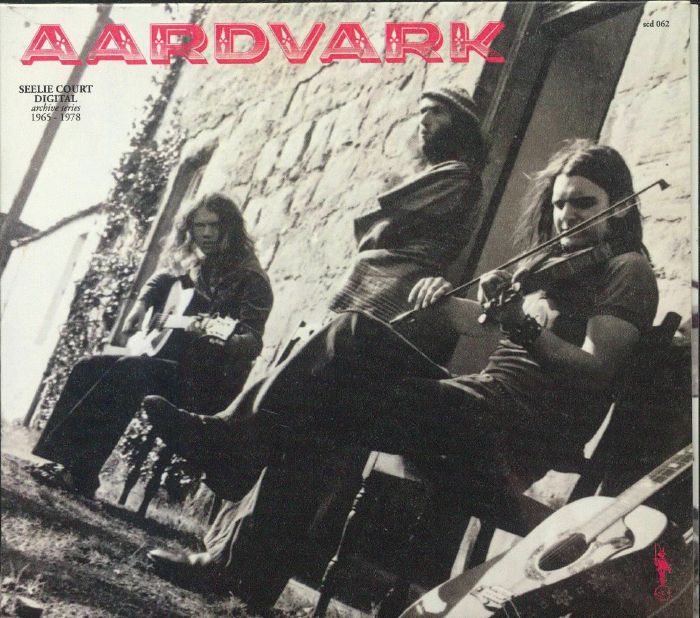
It’s fantastic to have you. Seelie Court surprised us with another obscurity. Were you aware of another band called Aardvark that issued a record on Deram?
Richard Dow: No, we weren’t aware of any other bands named Aardvark, and certainly never knew they had an album out on Deram. This is quite a surprise for me to learn. I just had a listen to them on YouTube, and they are a completely different style of band from us. We wrote all our tunes in a folk vein and concentrated on our three-part harmonies. Cammy was a great addition to the band as he was a multi-instrumentalist, playing guitar, flute, fiddle, and bagpipes.
What’s the story surrounding your band name? What inspired it?
We were living on a pretty remote farm in Scotland outside the village of Slamannan and had a large rehearsal room with all our gear set up. One day, we were all milling about thinking about a name, and someone had the bright idea of opening a dictionary. The first word in this dictionary was “Aardvark”! The rest is history.
I would love it if you could tell us about your background. Where did you and the members of the band grow up, and what was it like?
I grew up in Falkirk, Scotland. David, our singer, was from Stenhousemuir, a village in the Falkirk District, and Cameron was from St. Ninians, Stirling. My dad is Scottish and my mum is Italian. They met in Rome at the end of WW2 when my dad was in the army. It was difficult growing up in Scotland with an Italian Catholic mother, as there was a lot of religious bigotry in Scotland, and also being Italian, she was on the wrong side of history. I guess that made me more determined to do things, especially play music. I was best pals with Gordon Cooper, whose dad was also a drummer, and we started learning to play together. We were both music-crazy, and his mum was also Italian! We both learned to play drums and guitar and played in the high school band too. Having both dads being musical was a great asset for us both. We fed off each other and begged, stole, and borrowed various pieces of equipment to play together. The ’60s were a great time for music.
Do you feel there was a certain moment that inspired you to pick up an instrument? Were you influenced by traditional music?
My dad was a big band drummer and taught me to play drums. He was into jazz but also had Everly Brothers and Buddy Holly records I used to listen to and sing along with. Mum, being Italian, used to play Mario Lanza and the soundtrack to South Pacific. I was sent to Muirhead and Sons pipe band to learn drum rudiments, but I didn’t stick with it for too long. The ’60s was such a great time to be alive as the music was fantastic! I had a small group of like-minded friends who were all crazy about listening, learning, and playing music. We’d go and see bands, watch what they were playing, and sit in our bedrooms for hours trying to play the chords. My mum and dad bought me a Freshman electric guitar, which was a nightmare to play, but if you could play chords on it, getting on to a better guitar was a cakewalk. I was listening to The Beatles and playing pop music. When I joined Heenan Froude Set, they were more Tamla Motown, then forming Susan Ram, playing blues! I ended up forming a country rock band after Aardvark with David called Thrush. We had the bass player from Heenan Froude Set/Friendship too, Charles Dyer. Thrush was the most successful band David and I formed. David sang at talent competitions when he was on holiday with his parents and won a few. This inspired him to take it further and form a band in his local village of Stenhousemuir.
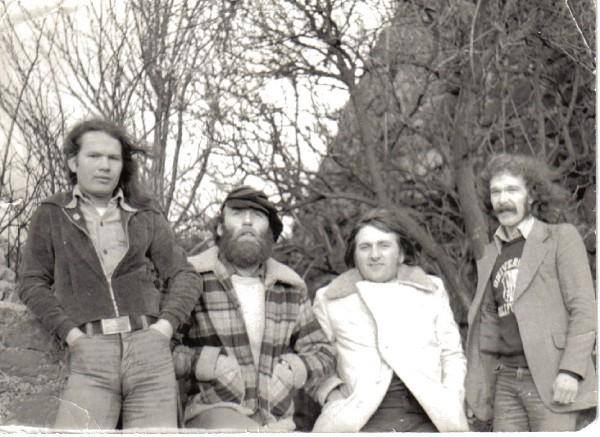
What was the scene like in your town?
Falkirk is a small town but had a very vibrant music scene. There was a local club, La Bamba, where we all went to listen to live music. There was also live music at the local village town halls, church halls, and youth groups in and around Falkirk. Lots of great touring bands visited the town. Many great Scottish bands were around in the late ’60s: The Poets, Dream Police, Stoics, Writing on the Wall, and many more. We also had Rory Gallagher with Taste, Marsh Hunt, Slade, and Sam Apple Pie playing at La Bamba. It was a great time to be a teenager as the music scene was tremendous and very inspiring for us.
Were you and any other members of the band part of any other groups before forming Aardvark?
I was in a couple of pop bands formed at school: The Four Teens and the Cross Cut Section. David sang with The Twilight Zone, Heenan Froude Set, Friendship, then Aardvark. I believe Aardvark was the first band Cammy was in.
How did you originally meet?
It was at a gig at La Bamba I was playing at as a 14-year-old drummer with the Cross Cut Section. I met Davey, who was in the audience and came up to talk to me and asked me to join Heenan Froude Set after seeing me play. This was the start of a very long friendship and musical journey we both shared. I had seen Davey sing and play with The Twilight Zone at the Dobby Hall in Stenhousemuir. I went to see Heenan Froude Set play at an open-air concert, and it was a no-brainer to join. We met Cammy at the John Dee Hotel, which was a very popular drinking hole back then. We started talking and then arranged to have a jam together. It was obvious after the first jam that we had met someone who could play and had a great harmony voice too.
What led to the formation of Aardvark? Was there a certain overall concept you had in mind when forming the band?
I left Heenan Froude Set and formed a blues band, Susan Ram. Heenan Froude Set changed their name to Friendship. David went on tour to Italy with Friendship, and on their return, the band split up. I had left Susan Ram and sold my drum kit to go to Rome to visit my relatives. I met a young girl there who gave me her acoustic guitar. I had been playing guitar too as a kid. I bumped into Davey in the town, and he invited me up to his flat. He was now living in Falkirk. We started singing together and realized we had some nice harmonies, and that was the start of Aardvark.
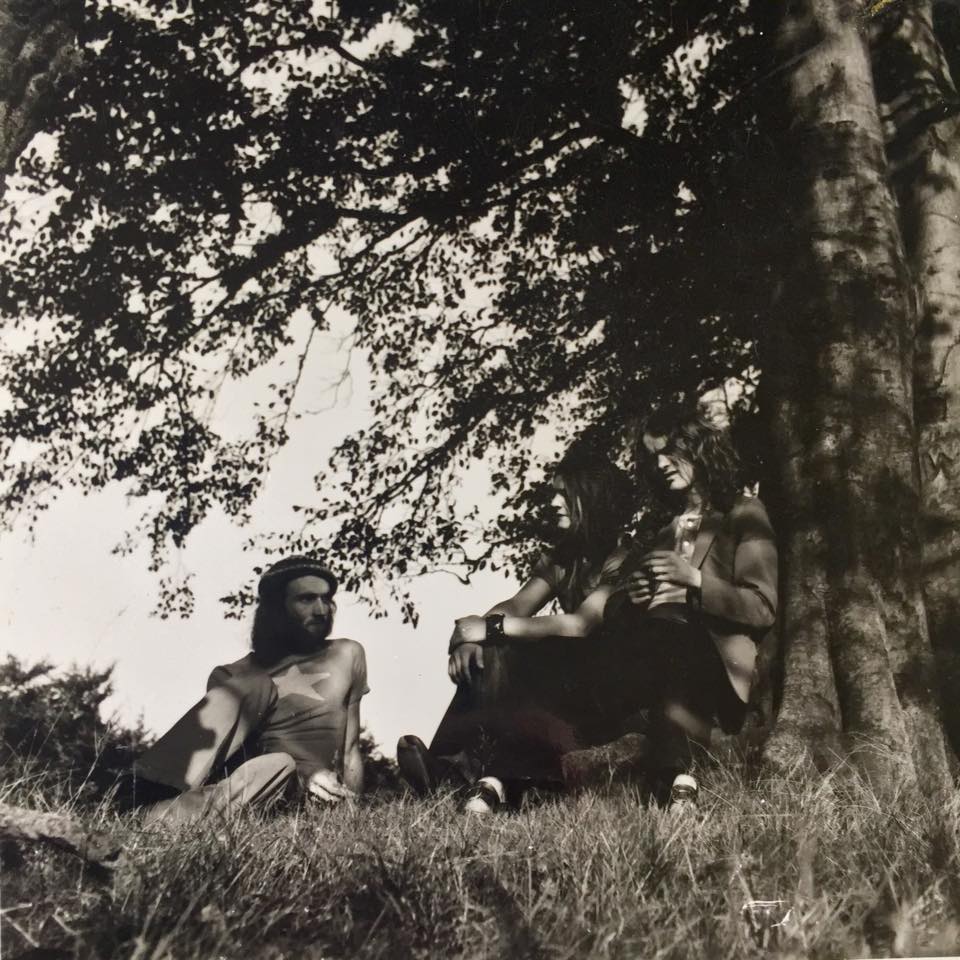
When did you form and for how long were you active? Where were you based as a band?
We formed Aardvark around 1970 and played in and around Falkirk for a couple of years. Being a folk harmony band, we were able to go around the local pubs to play gigs. We became very popular locally, which we then took on to bigger and better things with the name change and different personnel.
What clubs did you play? What were some of the bands you shared stages with?
We played in pubs around the district and folk clubs too. My memory is not great about Aardvark, as it’s so long ago it’s quite a distant memory! I remember the era; it was a very psychedelic time, lol. I have much better memories of Heenan Froude Set and Thrush, as we did television and radio work. We also played larger gigs like the Apollo in Glasgow, the Playhouse/Odeon in Edinburgh, and had a week at the Kings Theatre in Glasgow too.
Tell us about the recordings Seelie Court will issue. Where were they recorded?
The album was recorded at Central Scotland Recording Studios in Camelon, Falkirk. The owner and sound engineer was a personal friend of mine, Jim West. It was recorded on a half-track Revox tape deck in one day. I added a bass after we had finished, and that was the only overdub we did. We did it as Cammy was leaving for Canada, and we wanted something we could look back on, as those were very creative and happy times.
What kind of equipment did you use, and what can you say about the artwork?
I had a Yamaha acoustic guitar, then a Levin, before getting an Ovation Balladeer and a Gibson J45. I still have the Ovation and Gibson. We mic’d up all the instruments through Orange PA columns with an H&H 6-channel amp. We used Shure SM58s on vocals. The artwork is being done by Steven, using a picture of the band outside the farmhouse we lived in.
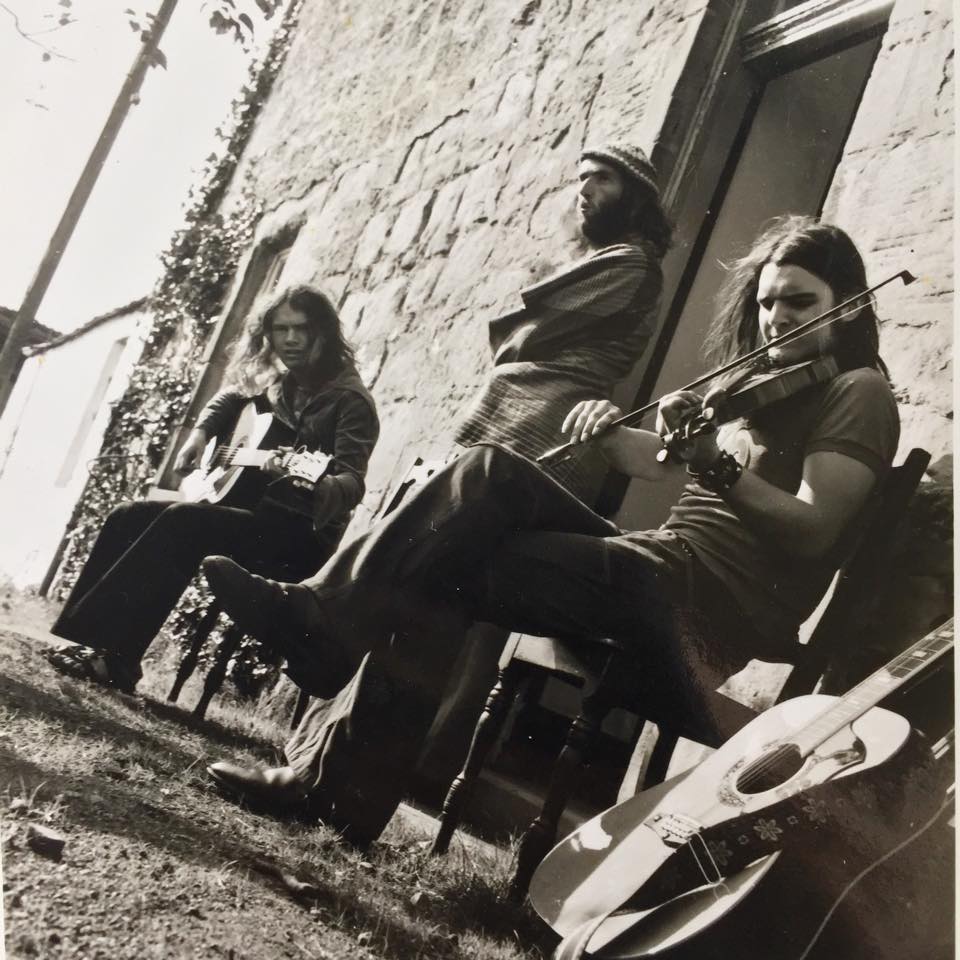
Would you share your insight on the album’s tracks?
All the tracks were written by us on the farm. You can get the sense of some tracks, like ‘Cold December Morning,’ as it was snowing outside the farmhouse, and that track has a cold feeling about it. ‘Boness for the Weekend’ is a tongue-in-cheek song about the coal town of Boness, where no one ever went for the weekend. ‘That’s the Way We See It’ is pretty self-explanatory. ‘Sing Us a Song About Something We Don’t Know’ was about all the love songs in the charts at the time. We wanted to hear something different. ‘Loot’ is about greed in general. ‘Walking Out into the Day’ was a kind of protest song. ‘As We Arose One Morning’ was a fun take on an English-style folk song. ‘Love People’ is about the hippie movement we were all involved in.
“I would come up with a melody and David would come up with lyrics to suit then we’d all chip in and change things at bits that weren’t quite right.”
What was the songwriting process like for you?
I would come up with a melody, and David would come up with lyrics to suit. Then we’d all chip in and change things at bits that weren’t quite right. We were all very innovative at that time, so writing was very easy. There wasn’t much else to do up on the farm, which was great for writing.
Is there anything else remaining unreleased?
No other recordings of Aardvark, but I’ve written and recorded a few tunes over the years and have a SoundCloud page. We have some good recordings of Thrush and Susan Ram.
What was the weirdest gig you played?
The Forum Lounge in Camelon, where the audience was very hostile. They got rowdier and rowdier as the evening went on because they were very drunk! They did appreciate the bagpipes when Cammy picked them up. I still have night terrors about that gig, haha.
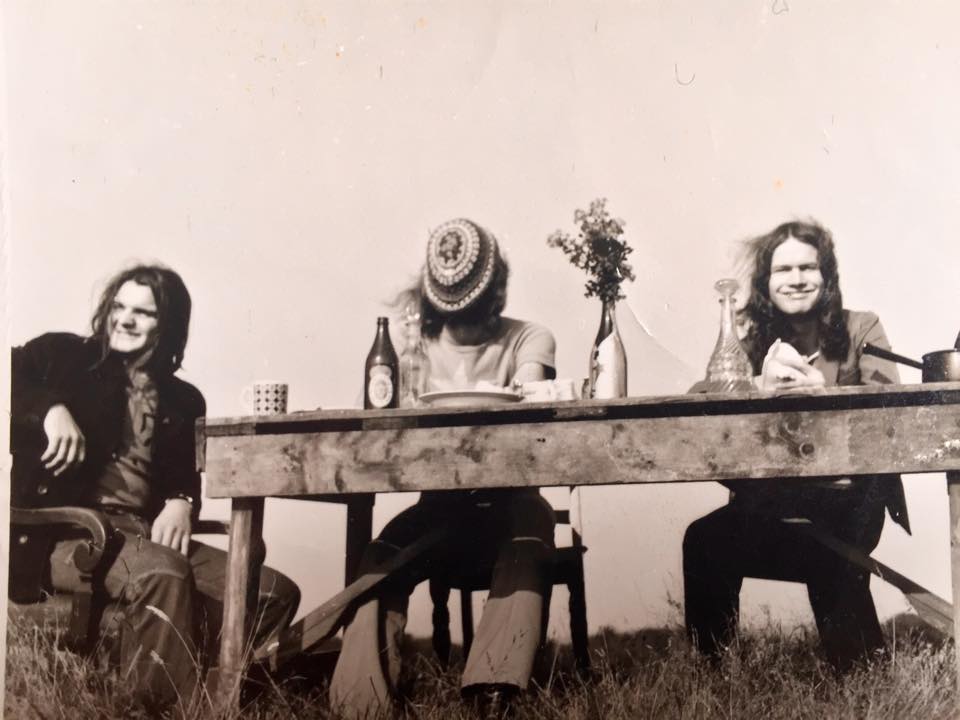
What happened after the band stopped? Were you still in touch with other members? Is any member still involved with music?
Cammy emigrated to Canada, and we lost touch with him, but David and I kept going. We replaced Cammy with another Cammy who played guitar, banjo, and had vocal harmony, before recruiting Roy Whittit on guitar and vocals and Charles Dyer on bass and vocals. We changed our name to Thrush and shifted our direction towards country rock with four-part harmonies. We continued to play and gig for several years until 1980, after which I went to work in Spain. We did have a bit of a reunion for a few months a few years later, but I couldn’t dedicate my time, so I left the band again. David and I also played together in a duo, but that didn’t last long either.
Looking back, what was the highlight of your time in the band? Which songs are you most proud of? Where and when was your most memorable gig?
The whole album has a special place for us, as it was the first set of songs we’d written together, and we lived together, so we lived and breathed music! Our best gig was at the John Dee Graeme Hotel, where we would pack the place out on a Tuesday night. The owner was reluctant to let us play but soon changed his tune when we brought in the crowds, and we were moved to a Friday night.
What currently occupies your life?
I retired two years ago and played in a little band here in Perth called Chaos Engine for three years but got fed up, so I left last December. I’m back jamming with an American friend of mine who sings and plays harmonica. We’re covering some obscure country songs but intend to write some songs together in the near future, as he’s had a very colorful life traveling around America for ten years, jumping on and off freight trains. He has a diary of all the times he spent and people he met, which needs to be put into song. My daughter Simone has taken up the touring duties with her band Voyager, who represented Australia at Eurovision this year. She is an awesome lead guitarist. Voyager will be touring Europe in October.
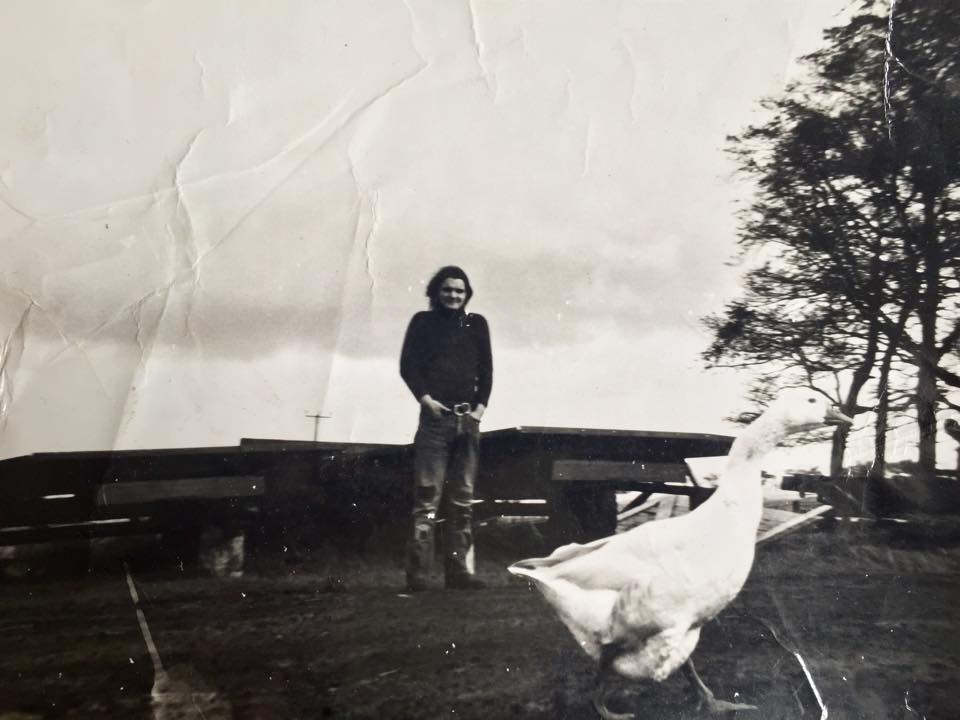
Thank you for taking the time. The last word is yours.
Thank you for giving me the opportunity to talk about my life as a musician with Aardvark and our musical journey. David and I are very excited about the upcoming release of the Aardvark album, as it has a special place for us both. This is something that current folk fans and future generations of our families can listen to and perhaps enjoy too.
Klemen Breznikar
Richard Dow SoundCloud

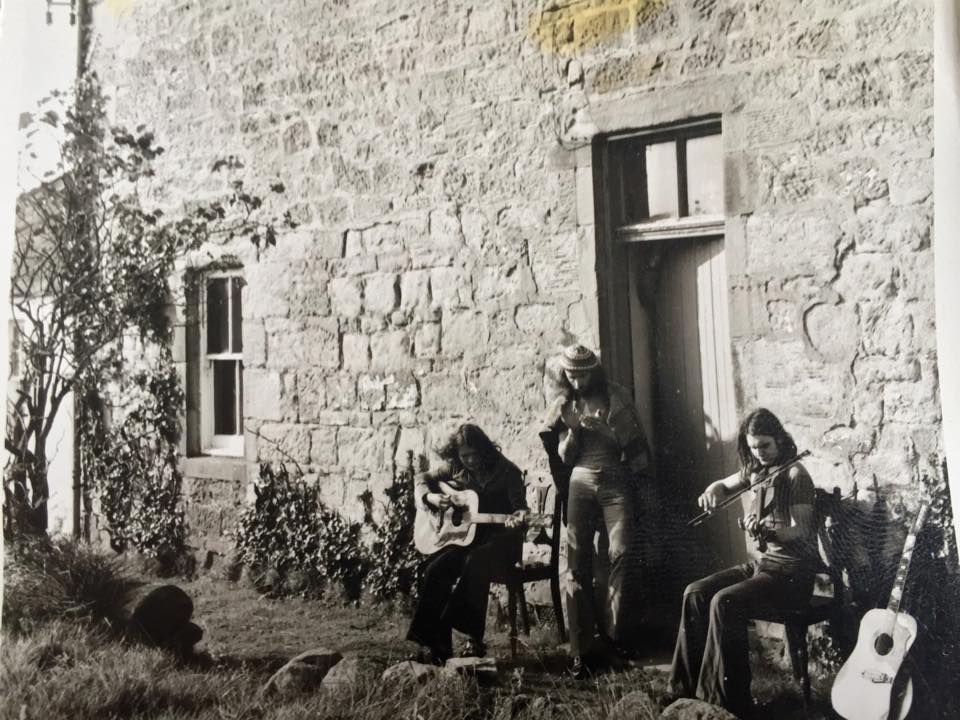

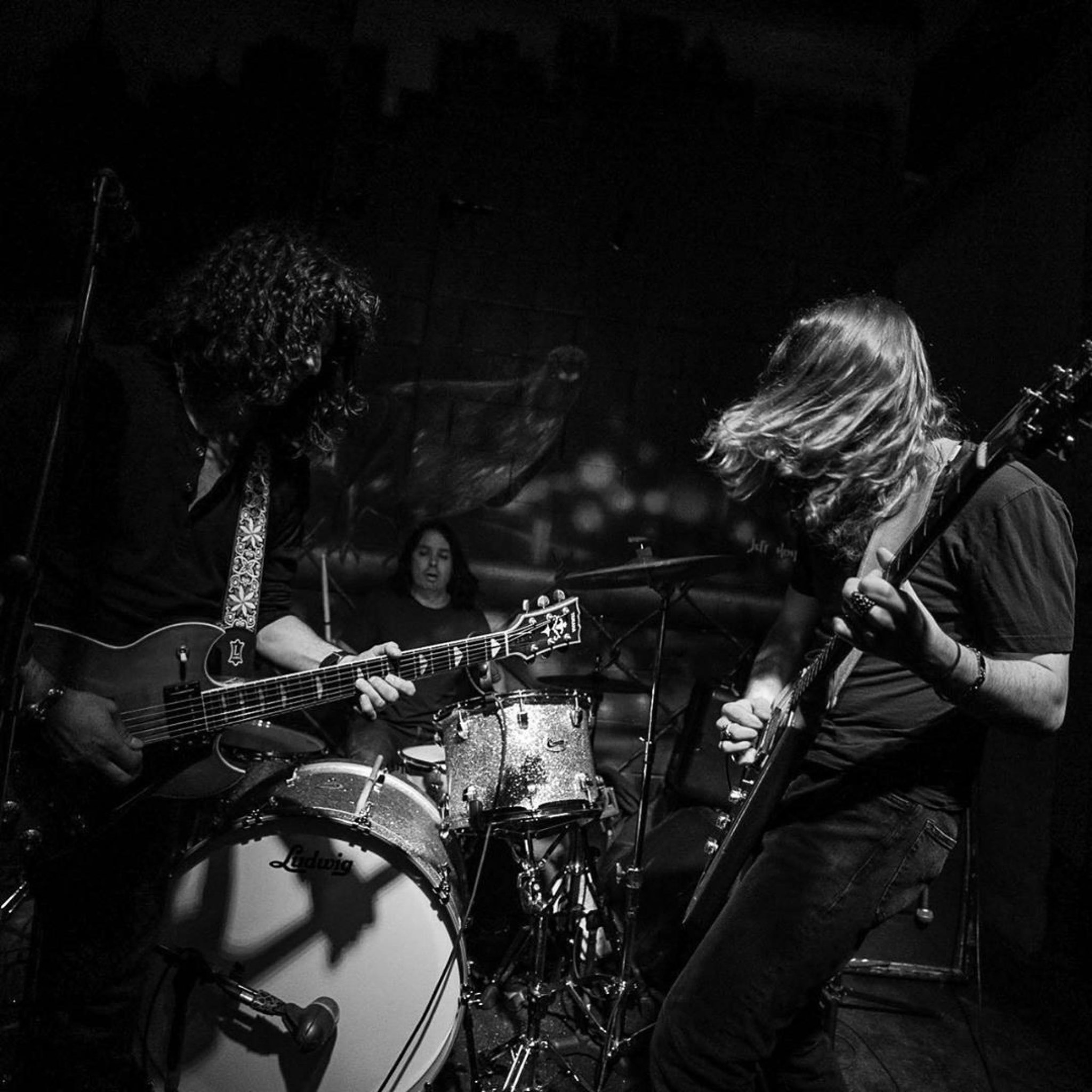
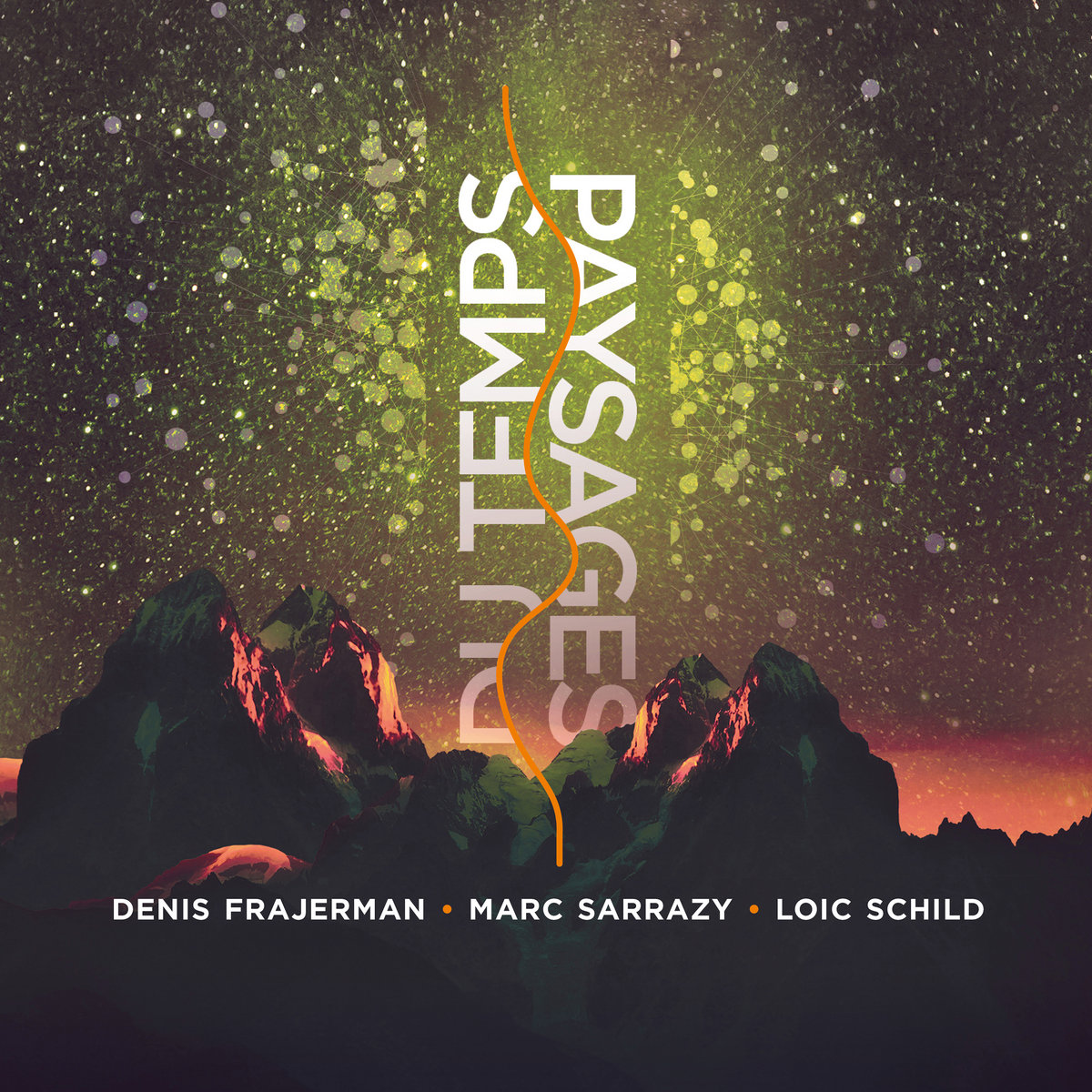
Nice album! Maybe you can ask which was the correct recording date? On the cover there are two different ones, 1970 and 1972! Thanks